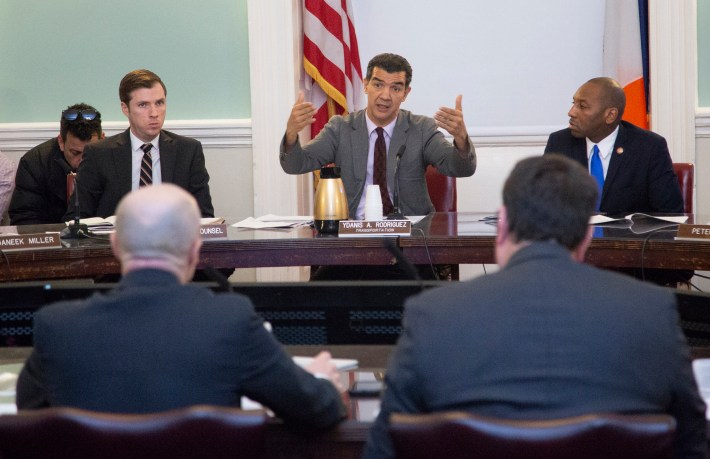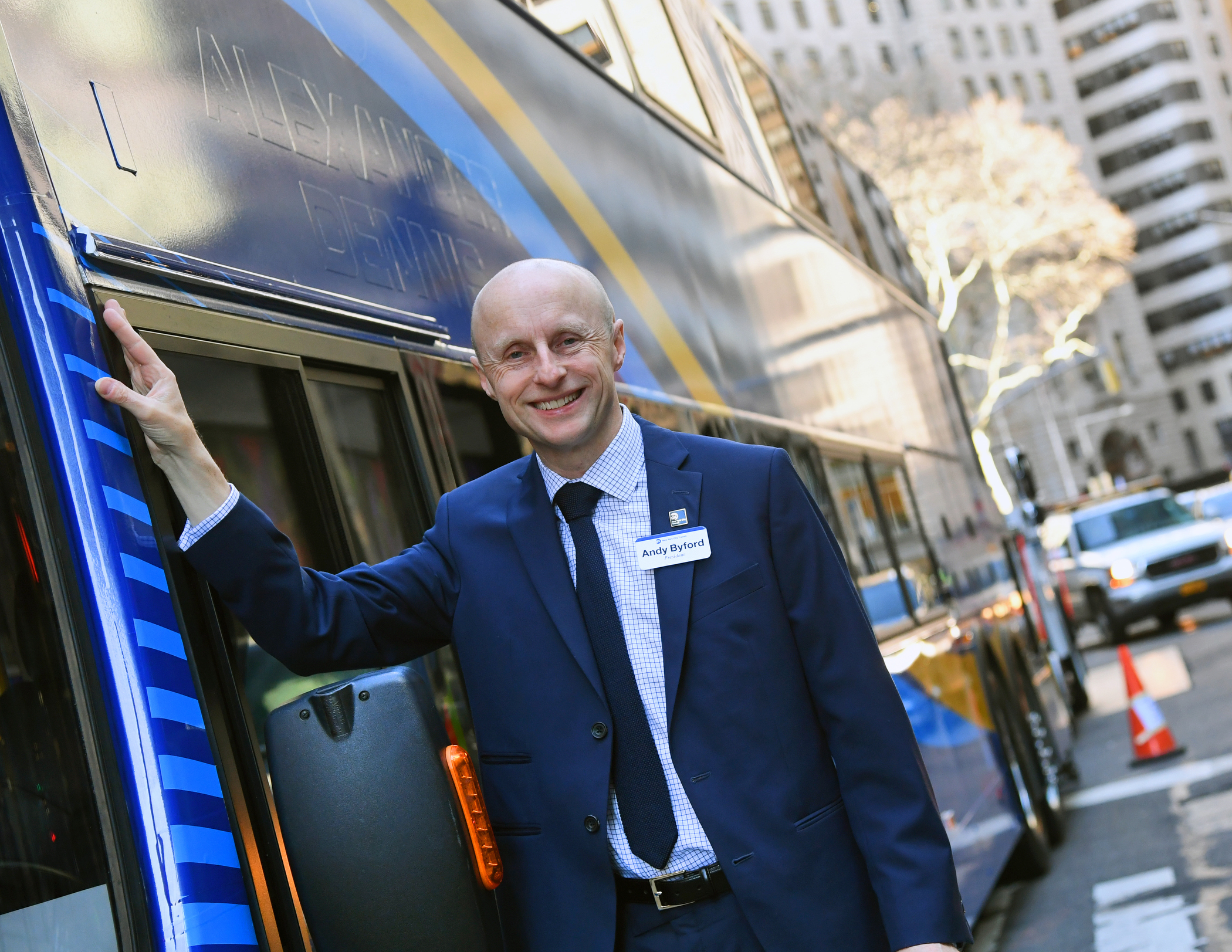Less than a year in charge of the city's buses and subways, New York City Transit President Andy Byford is already fed up with New Yorkers' knee-jerk tendency to oppose vital transit projects — and is imploring city council members to help him push back.
Testifying to the council on Tuesday, Byford warned that his plans to dramatically improve service and accessibility would fall short if every project has to endure months of localized opposition.
"This is where you come in," Byford told council members. "Being blunt: the Fast Forward plan will grind to a halt if ... we have to have a six-month stand-off at every single installation."
Byford elaborated on his point on Wednesday morning during at breakfast event hosted by Crain's New York Business.
"We’re not advocating some sort of undemocratic, crashing through neighborhoods and just installing things that people do not want, but what we do not have time for is a protracted debate about each and every one of the things that we need to do," he said of his $60-plus-billion plan, which seeks to modernize signals along all routes within 10 years and make the subway fullly accessible within 15.
In both comments, Byford referenced the installation of elevators, which are currently not available at the vast majority of subway stations, and additional power substations, which the MTA will need to build in order to run more trains. A much-lampooned dispute in Lower Manhattan earlier this year, where opponents argued that an elevator would leave them vulnerable to "terrorism," was probably top of his mind.
Byford's more notable "stand-offs" with local officials, however, have included protracted fights over his agency's efforts to improve bus service. In some instances, elected officials have egged on opponents of better bus service.
In Manhattan, the MTA and city DOT have been dogged by opponents of their plans to keep L train riders moving when that line shuts off in April, which include an expansion of bus lanes and a dedicated busway on a portion of 14th Street. That opposition fell short of stopping the project altogether, but it managed to convince Council Member Carlina Rivera to advocate against a 24/7 busway.
On Kenmare Street, another group picked up support from Council Member Margaret Chin, State Senator Brian Kavanagh, and Assembly Members Deborah Glick and Yuh-Line Niou in a successful effort to nix a one-way street design that the city said would have ensured better bus service for L-train refugees.
In southern Brooklyn, both agencies spent months in negotiations with elected officials and others opposed to the repurposing of parking spots for bus lanes along Kings Highway for B82 Select Bus Service. At one point, Council Member Jumaane Williams, then in the midst of a statewide campaign for lieutenant governor and now a leading candidate for city Public Advocate, attended a rally calling for the relocation of a single bus stop along the route.

At Tuesday's hearing, one of the elected officials who fought the B82 project most bitterly, City Council Member Chaim Deutsch, admitted that he rarely takes transit. (Deutsch loves his car so much that he calls the City Hall parking area, "the People's Parking Lot" when the private area is actually quite the opposite.)
"I actually took the subway twice last week, thanks to your leadership," he told Byford — glowingly, for some reason.
Byford's comments are a response to the distrust many elected officials legitimately feel towards the MTA after years of poor communication with locals, according to Riders Alliance Policy and Communications Director Danny Pearlstein.
“Past mistakes have a real threat of holding him back," Pearlstein said. "That history shouldn’t constrain future action in a positive direction for transit riders."







